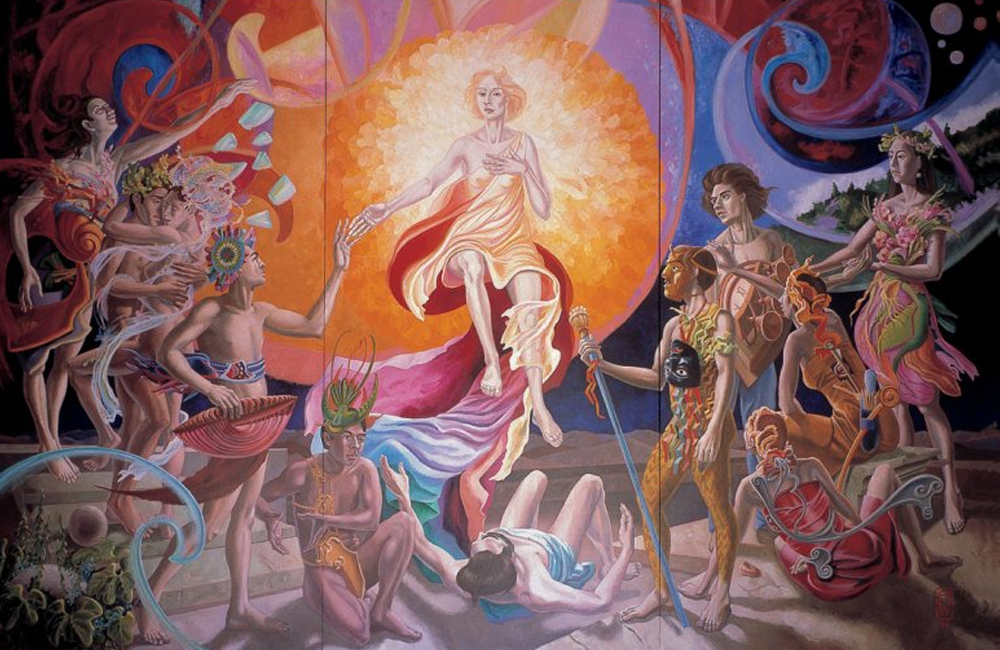On Maya Cousineau Mollen
Myriam Legault-Beauregard et Adam Meisner
As a literary translator, I am often thinking translation as I read. It is, as we say in French, a déformation professionnelle, an occupational hazard of seeing the world through translator’s eyes. Sometimes this leads to actual translation.
When I began reading poems on Facebook by Innu poet Maya Cousineau Mollen, I couldn’t help but try my hand at translating some of them. I began collecting them too, since words published on Facebook can easily vanish from our sight (even though Facebook likely has them all stowed away somewhere). When she published her first collection (Bréviaire du matricule 082, Wendake: Éditions Hannenorak, 2019), I asked her about translating it, but someone else had already taken the initiative to find a publisher for his translation of the book.
I continued doing the occasional translation of her occasional poems published on Facebook. When I proposed to her that I submit some to ellipse, she sent me other poems that had not yet been published.
Natasha Kanapé Fontaine is another poet, also Innu, who often posts occasional poems online. I have published translations of three of her poetry collections with Mawenzi House, but I have also translated some of her more ephemeral poetry. Some of these are related to specific events. For example, she wrote a poem on the occasion of a visit to Ottawa on July 1 one year. It was a very political poem, a comment on that particular occasion, as well as more generally on the place of First Nations peoples within the borders of Canada. I have published some of her occasional poetry in the magazines Arc and Maisonneuve.
Maya’s poetry is sometimes political too, but tends to be more personal. The poems by Maya, which follow, are more related to the immediate changes and challenges in her life.
In general, I think that poetry is much more tied to the present than prose, which often relates the story of past events. Poetry can tell stories too, but it is often about immediate reactions to what is happening and what is felt in the present. Traditional Japanese haiku exemplifies this: an immediate observation that evokes a feeling. No plot, no character, other than the eyes and ears of the observer.
I often read wonderful poems of the past quoted on Twitter, but social media has become more and more the place for poetry of the present. Many people, of course, share their daily lives on Facebook, Twitter and Instagram, but the most powerful of these messages, the ones that will perhaps have staying power, are often expressed in verse.
Much of the future of poetry, and poetry translation, seems to lie in online platforms, whether social media or online publications. We can only hope that once the current pandemic is behind us that poetry will reclaim its fundamental place in live presentations, but virtual publication and performance will continue to play a vital role.
Our dreams
They’re present, but mysterious
Suspended and unpredictable…
They float, forgotten by this time
Seeking their carriers of possibilities…
Confined by the invisible enemy
Our souls are choking on patience
Resignation pursues them
Overwhelming grayness
Our lost faces meet
Without seeing each other… evasive eyes…
This desert crossed. What will we have learned?
It mustn’t be forgotten…
And re-tame our dreams.
For nothing grows on barren land…
A poem on people with ASD–Asperger
Son of Vulcan
Sometimes he gets lost in his thoughts
Whispering in elvish
In his tranquil voice
Touched by a misunderstood gift
Believing he deserves a limbo of loss…
He wanders between universes.
His quick, spirited mind
Hides behind a worried look…
Forest green eyes
His greedy man’s hugs
My secret garden
Where I find life and my beauty
His hand is still looking for me
Did he lose me in a former life?
Haunted by truth
Tormented by fitting
In an impossible world
Misunderstood child of the Spectrum
With neglected talents
Like those stars
Which far away seem cold
But whose hot souls
Are seething like Vulcan’s core
Nos rêves
Ils sont présents, mais mystérieux
En suspension et imprévisible…
Ils flottent, oubliés par cette époque
Cherchant leurs porteurs des possibles…
Confinés par l’ennemi invisible
Nos âmes s’étouffent de patience
La résignation les poursuit
Accablante grisaille
Nos visages perdus se croisent
Sans se voir… l’œil fuyant…
Ce désert traversé. Qu’aurons-nous appris?
Il ne faudra pas l’oublier…
Et ré apprivoiser nos rêves…
Car rien ne pousse sur une terre stérile…
Un poème sur les TSA – Asperger
Fils de Vulcain
Parfois il se perd dans ses pensées
Chuchotant de l’elfique
De sa voix paisible
Touché par un don incompris
Croyant mériter des limbes de perdition…
Il erre entre les univers..
Son esprit vif et fougueux
Se terre derrière un regard inquiet…
Au regard vert sylvestre
Ses étreintes d’homme gourmand
Est mon jardin secret
Où je retrouve la vie et ma beauté
Sa main me cherche toujours
M’a-t-il perdu dans une ancienne vie?
Hanté par la vérité
Tourmenté pour fitter
Dans un monde impossible
Enfant incompris du Spectre
Aux talents négligés
Comme ces étoiles
Qui lointaines semblent froides
Mais dont l’âme chaude
Bouillonne tel le noyau de Vulcain

